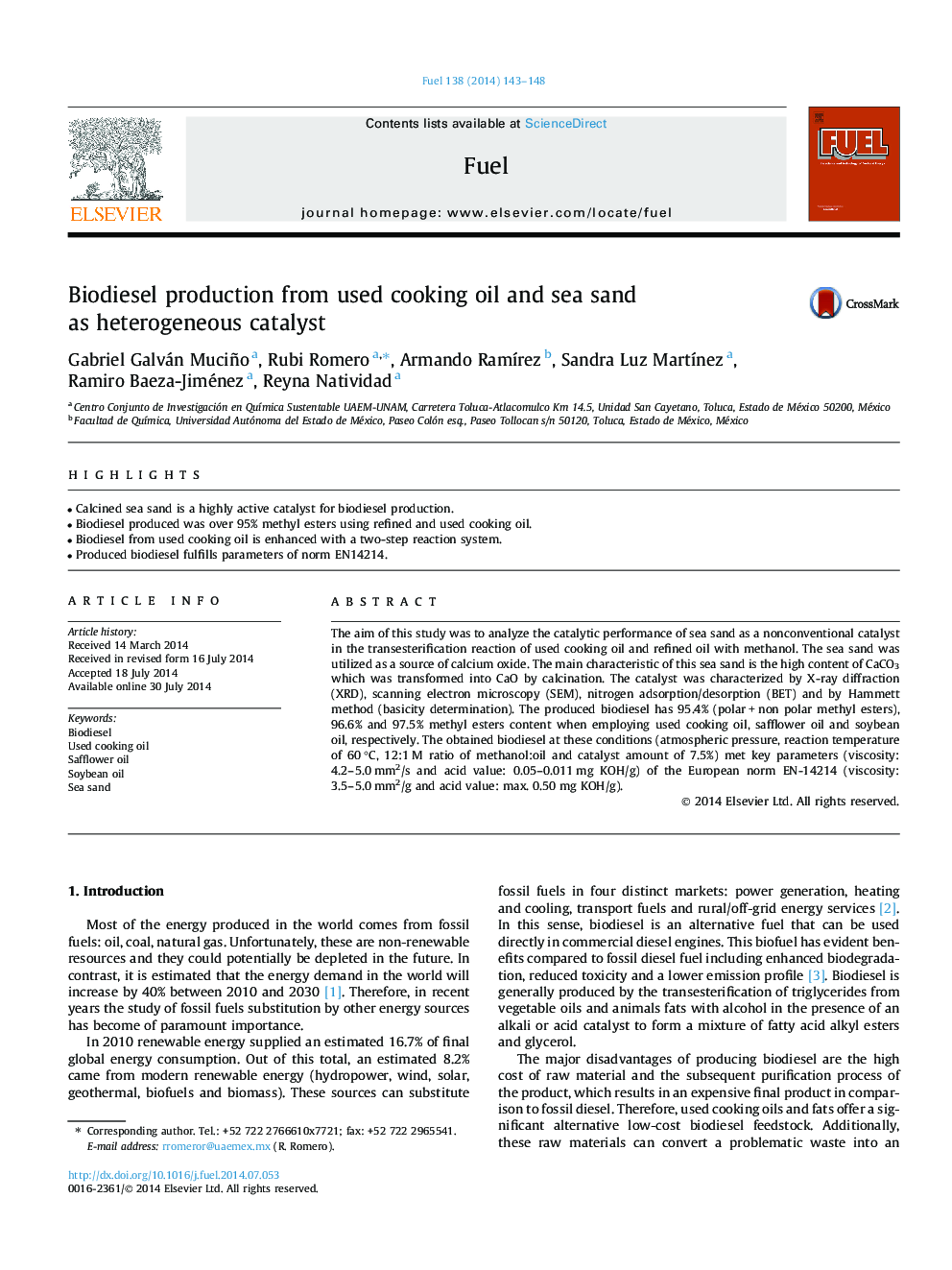| کد مقاله | کد نشریه | سال انتشار | مقاله انگلیسی | نسخه تمام متن |
|---|---|---|---|---|
| 206007 | 461135 | 2014 | 6 صفحه PDF | دانلود رایگان |
• Calcined sea sand is a highly active catalyst for biodiesel production.
• Biodiesel produced was over 95% methyl esters using refined and used cooking oil.
• Biodiesel from used cooking oil is enhanced with a two-step reaction system.
• Produced biodiesel fulfills parameters of norm EN14214.
The aim of this study was to analyze the catalytic performance of sea sand as a nonconventional catalyst in the transesterification reaction of used cooking oil and refined oil with methanol. The sea sand was utilized as a source of calcium oxide. The main characteristic of this sea sand is the high content of CaCO3 which was transformed into CaO by calcination. The catalyst was characterized by X-ray diffraction (XRD), scanning electron microscopy (SEM), nitrogen adsorption/desorption (BET) and by Hammett method (basicity determination). The produced biodiesel has 95.4% (polar + non polar methyl esters), 96.6% and 97.5% methyl esters content when employing used cooking oil, safflower oil and soybean oil, respectively. The obtained biodiesel at these conditions (atmospheric pressure, reaction temperature of 60 °C, 12:1 M ratio of methanol:oil and catalyst amount of 7.5%) met key parameters (viscosity: 4.2–5.0 mm2/s and acid value: 0.05–0.011 mg KOH/g) of the European norm EN-14214 (viscosity: 3.5–5.0 mm2/g and acid value: max. 0.50 mg KOH/g).
Journal: Fuel - Volume 138, 15 December 2014, Pages 143–148
